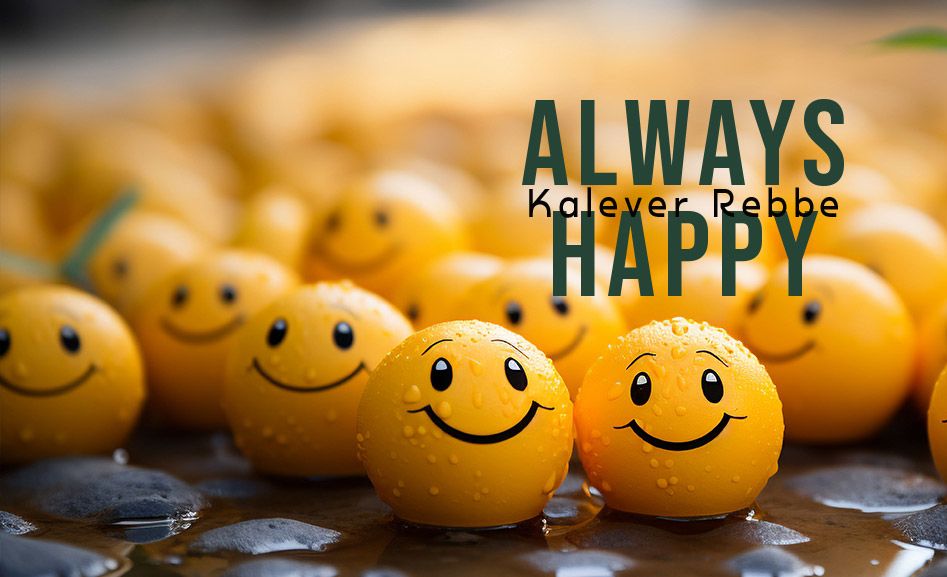
Darkness Before Light
Did you ever wonder why the Hebrew Calendar day begins at sundown, and the darkness of night precedes the light of day? This is a firm law of creation...

Translated by Rabbi Lazer Brody
Did you ever wonder why the Hebrew Calendar day begins at sundown, and the darkness of night precedes the light of day? This is a firm law of creation, which manifests itself in our lives every day and in every situation.
Before a person sees “light” in life – success and achievement, he must pass through “darkness” – obstacles, failures, and setbacks. Hashem does this to rid us of the arrogance that the primeval snake instilled within human nature when he said, “And you shall be like G-d” (Genesis 3:5).
The darkness that a person must withstand in both spiritual and material endeavors breaks down his “inner darkness” of heresy and arrogance. With the straits of difficulty, a person realizes that he is nothing without Hashem. He begins to understand that he needs Hashem in his life.
We can now understand why Hashem gives us the challenging times of our lives – the contractions, exile of the soul and the down periods. Many people don’t begin to seek Hashem unless they’re faced with bankruptcy, a sickness, or a seemingly insurmountable marital problem. Hashem wants us to put our arrogance aside and to be submissive to Him for our own benefit, for submission to Hashem shatters one’s inner darkness.
When Hashem destroys our arrogance, He gives us the desire to seek the light. Humans often forget Hashem during good times, becoming arrogant and thinking that their talents and abilities are what brings them success. That’s what the Torah means when it says, “And Jeshurun (metaphor for Israel) became fat and kicked” (Deuteronomy 32:15).
We must constantly remind ourselves that arrogance is the root of one’s problems in life. A person has a  natural tendency to forget Hashem during good times. Periodic setbacks are therefore loving reminders that we need Hashem in our lives. Submission to Hashem – the opposite of arrogance – is the key to our connecting with Hashem.
natural tendency to forget Hashem during good times. Periodic setbacks are therefore loving reminders that we need Hashem in our lives. Submission to Hashem – the opposite of arrogance – is the key to our connecting with Hashem.
Arrogance creates a barrier between a person and Hashem. Arrogance is like a helium balloon – the more inflated a person’s ego is, the higher his pride. But, as soon as a setback comes along and bursts the balloon, the person falls; the more the arrogance, the deeper the fall. The fall is not a punishment, though. It’s Hashem’s way to help a person learn humility and submissiveness. As long as a person is arrogant, he’ll neither be able to pray properly nor learn emuna. Arrogance blocks Divine illumination from reaching one’s soul.
King Solomon says, “A person’s folly leads him astray, and then he’s upset with Hashem” (Proverbs 19:3). In other words, a person does idiotic things. When he reaps the bitter consequences of his deeds, he’s angry at Hashem. Instead of blaming Hashem, we must realize that our own desire of running our own life is what leads us to darkness. When a person tries too hard to take charge, he ends up losing control altogether. He severs himself from emuna, refusing to believe that Hashem is all powerful, and therefore loses his strength. At that point, his life is plunging into a downward spiral. Once nothing goes the way he wants it to, he loses all desire and vitality, falls into the self-persecution mode and harbors a grudge against Hashem.
Where did it all start? The trouble begin when he lost sight of Hashem, as if he alone controls his own destiny. Think of it this way: a person is driving a car with a very accurate GPS navigation system installed. He turns off the GPS, gets completely lost on the way, then blames the GPS…
Ever since the snake (the evil inclination) told Adam and Eve that they’d be like G-d, human nature has a desire to be like G-d – in total control, with no one telling you what to do. That’s why it’s not easy to relinquish control and to subjugate ourselves to Hashem’s rule and will. It’s hard for us to admit to ourselves that we are creations, able to do nothing without The Creator’s assistance.
In light of the above concept, we can now understand also why it’s easier for a person to learn Torah than it is to pray. Prayer goes against the grain of one’s ego, for sincere prayer is a person’s declaration that he needs help, that he’s not capable of accomplishing something on his own. Yet, Torah learning (when not done in the proper manner, to attain emuna and to get close to Hashem) can fuel a person’s ego to the degree that he considers himself a scholar or that he holds himself on a higher level than others. That’s why many people prefer Torah learning to prayer.
A person’s setbacks in life are designed to arouse a process of introspection and reassessment of actions and values. One who reacts with bitterness and anger at Hashem is missing the whole point of the message, which is simply calling a person to relinquish control to Hashem and to willfully accept Hashem’s reign.
We have nothing to fear by letting Hashem sit in the driver’s seat. A person doesn’t lose anything by subjugating himself to Hashem. On the contrary, he gains emuna and every single blessing imaginable. Not only that, but by clinging with emuna to The Almighty, a person gains unlimited potential. Rebbe Mordechai of Lachovich used to say that without Hashem, a person can’t cross the street; but with Hashem, a person can split the sea…
Rebbe Nachman says (see Rebbe Nachman’s Discourses, 2) that one is well-advised to completely cast himself in Hashem’s hands. Rebbe Nachman would say daily, “I hereby entrust every move I make, every utterance I speak and every thought I think to Hashem.” He said that from that moment on, he had nothing to worry about for the rest of the day, for he placed his entire trust in Hashem. Once we do the same, the darkness becomes light.










Tell us what you think!
Thank you for your comment!
It will be published after approval by the Editor.